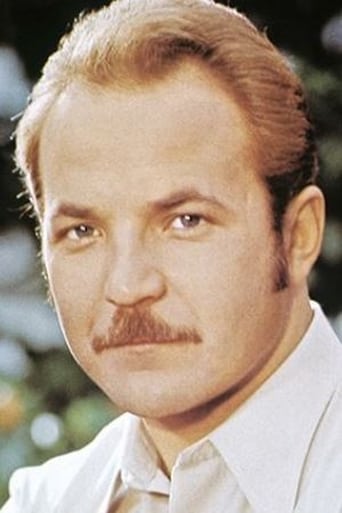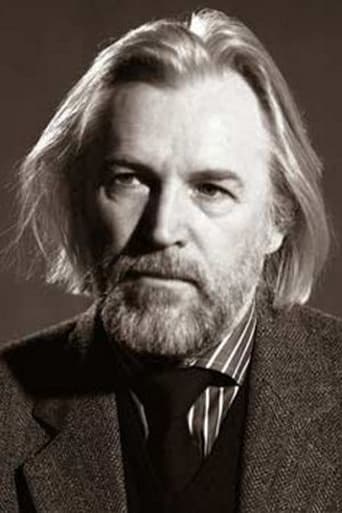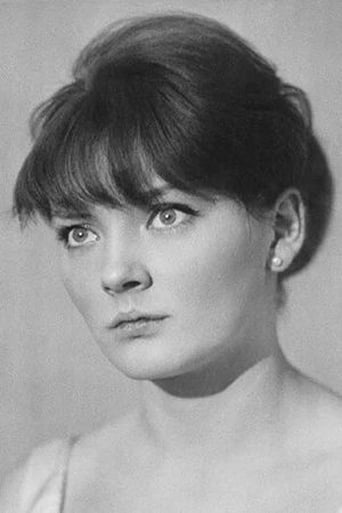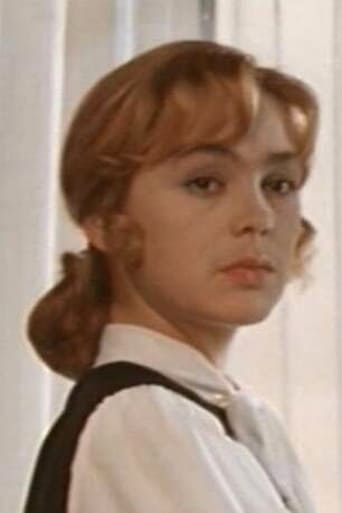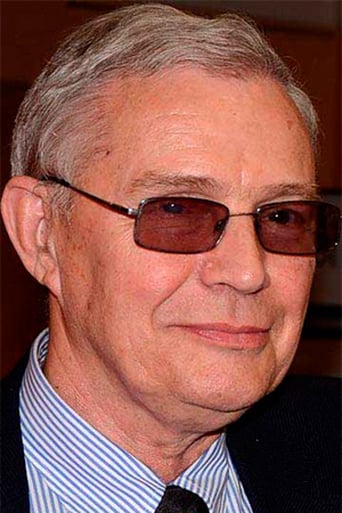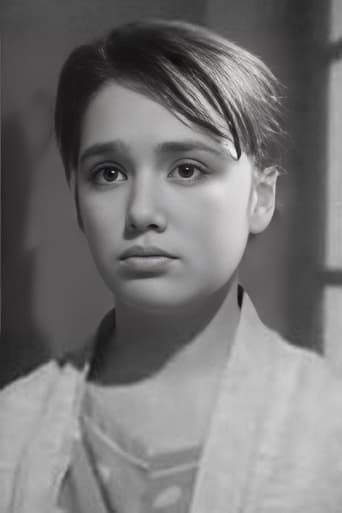adriennenoracarter
Khutsiev's I Am Twenty is a sort of coming of age film—the generation it deals with is those coming of age in the 1960's, the young adults of Khrushchev's thaw. I Am Twenty follows just returned from the army Sergei, his two best friends—Nikolai(Kolia) and Slava, and his eventual love interest, Anya. They all struggle finding their place in the adult world of Moscow 1962 . . . Sergei has just returned from his time in the army and finds it difficult to return home and have the same relations as he did before his time in the army—he's not really sure what he should be doing; Slava has a wife and child, but still tries to hang around with Kolia and Sergei like nothing has changed; Kolia is a hard worker and also quite a flirt; Anya is in the midst of a divorce and is quite an unstable, flighty character for most of the film—her words and actions don't always add up. One theme in the film is the lack of knowledge from one's elders—it also translates into a sort of teenaged/young adult angst feel. Sergei's father, for example, died in WWII at a very young age so he has never been around to give Sergei advice or help him in this transitioning phase. He gives Sergei one word of advice in a dream —'live'. This is very hopeful, but still doesn't give Sergei much direction (he wouldn't however, know how to help Sergei in this transition phase since he himself never got to live through it). One of the technical highlights of I Am Twenty is the way Moscow is shot. It is a truly beautiful city, and this film does a great job of showing that: the shots of the parks of Moscow and the Kremlin for example are beautiful and can show even one who has never been to the city just how magnificent it is.
Martin Teller
Man, those Russkies sure know their way around a camera. I've come to expect great cinematography from Soviet cinema, but this is the finest I've seen in quite a while. I could make a picture book out of screenshots from this movie, but even that wouldn't capture all the magnificent movement, such gracefully choreographed tracking shots. The movie has a visual energy that captures the hustle and bustle of Moscow, particularly from the perspective of youth. But it also beautifully highlights the quiet moments of the wee hours of the morning. It's gorgeous, breathtaking, exciting photography. And the soundtrack has a lot to offer as well, with interior monologues, heightened sound design, and the use of contemporary tunes (including American rock and French pop), folk songs, classical and moody ambient music. I haven't even gotten to the substance of the film yet. The story follows a young man and his two pals, trying to find their place in life. The narrative has a freewheeling new wave vibe to it, accentuating individual moments rather than grand dramatic arcs. These are the lives of youths unsure of how to live or what to live for, a generation with many left fatherless by the war. Although a rather long film, I can't think of anything that felt superfluous, every scene had its own insights or charms. I'm tempted to give this film a 10, but I'd like to have a second viewing before I jump the gun. It definitely made an impression on me.
RangeR BoB
This film was shot in 1962, which saw Kruschev face off with Kennedy over the placement of nuclear missiles in Cuba. It is considered part of the "New Wave" of Soviet cinema because at this time the arts community felt a reprieve from the absurd, very often brutal (the list of artists perished under Stalin is countless). and totalitarian treatment of their work under Stalin. They once again felt like they had a certain amount of freedom to explore the human condition rather than simply crank out bland polemics about the glory of communism.Because of extensive reworks by the censors, the film was shortened from nearly 3 hours down to barely an hour and a half when it was not finally exhibited until 1964.The film deals with three school chums, Sergei, Slava and Nikolai. Sergei is returning to Moscow from his hitch in the Army to find that "you can't go home again" Slava is married and has a toddler. Nikolai is doing research at a scientific institute. Nikolai offers to find Sergei a job at the Institute, but Sergei decides to follow in his deceased father's (killed in battle at age 21 in 1943 during the Great patriotic War, aka WWII) footsteps and work at the local power plant.Sergei finds that his relationships to people have changed. Slava is distanced from them by his marriage and family commitments, but still tries to be "one of the boys" Nikolai works hard, and flirts shamelessly in exchange. Sergei feels alone and uncomfortable, never really sure what he should be doing. He still lives in the same flat with his mother and younger sister, he goes to work each day and studies to be an engineer at night.Sergei spies a lovely woman on the street car, and begins a long chase across Moscow, where he follows her from place to place, in the markets, on the Metro, always catching, then avoiding her eye, but never working up the courage to speak to her. Eventually he finds himself at the door to her building, watching her ride away in the glass elevator, kicking himself for not having more courage.Sergei meets the same woman, months later, at the May Day parade. He is able to lure her away from her friends with some assistance from Nikolai and Slava. The two gradually fall in love, but Anya turns out not to be a very stable character. The romance builds, and Sergei is introduced in turns to her estranged spouse, who she is divorcing, and to her father, who expects that she will never settle down and will remain forever in the family apartment. Both consider her flighty and reckless.Sergei's despondency eventually leads him to a dream where he meets his father, who died in battle never knowing that he had a daughter. He asks his father for guidance, and is told simply "live" because his father was cut down so young.As the film progresses, it asks the usual passel existential questions common to "youth angst" films like "why am I here, where am I going, what is it all for?" The film never seems to approach any answers to these questions. Slava's discontent at losing his freedom to marriage, Nikolai's being asked to become an informer at work, which would make Nikolai into a collaborator with the Communist regime that he thinks he is slowly gaining freedom from, Sergei's inability to fit in, are all exposed, but never concluded. It is an open question for me whether this lack of resolution came about because the director chose not to answer these questions (in order to make the viewer think, rather than pour pabulum down the his throat), or because Khutsiev felt that his answers would never get past the censors.Despite its dark and troubled subject matter, this film is filmed in a very bright and artistic style. The camera work for the film is most impressive. During the long chase scene across Moscow, the camera often took the point of view of the actors, catching glimpses of each other through someone's crooked elbow on the streetcar or over a stack of books at a street vendor. In other scenes the scope is large and there are many beauty shots of central Moscow, Lenin's Tomb, the Kremlin, parks and so on to show the inherent loveliness of Moscow. The distinctive flared shape of the cooling towers of a nuclear reactor is worked seamlessly into the background, rather than as a jarring set piece demonstrating the progress of the great Soviet Society. The director's choice of camera angles and the setup of the shots is definitely arty without feeling forced or over the top.The director clearly is in love with Moscow and its people. The tenor of the film is very Hollywoodesque: The streets are always clean. Newly fallen snow is always pure and white, not covered in soot and ash. The streets have no potholes. There are no drunks lolling in the street. People go to parties, drink and talk without making asses out of themselves from too much vodka and bad singing. Communal apartments are quiet, brightly lit and inviting rather than the dank and noisy holes that most people equate with Soviet planned communities. The actors are all tall, strong and handsome, the actresses are all slender and model beautiful. All are impeccably dressed in the latest (for 1962) fashions: coats and ties for the men, skirts and heels for the women. The contrast between the actors and reality is never stronger than the scene where the lovely leads watch a Comsomol choir singing. The true faces of the proletariat contrast with the scrubbed and primped actors in a most striking way.The film is shot in gorgeous black and white, with terrific contrast and depth. I have often asserted that to film THINGS , use color. To film PEOPLE use black and white, and the subtlety and shading of the lighting and camera work in this film back that assertion up quite nicely.Some of the scenes are very touching and speak to feelings that most of us have had at one time or another. We ache for Sergei and Anya to get together and be happy. We feel the tension and hurt feelings between the young men as they realize they are growing apart as they grow up.For all of its beauty the film has some distractions. The actors themselves are convincing enough but much of the dialog, especially in scenes such as where Sergei meets Anya's father, and later his own father in the dream, or when Sergei offers a toast to the humble potato for saving their lives from hunger during the war, fall flat because of ineffective dialog. Granted, I was watching the translation via the subtitles, but it seemed to me that if the subtitles were even 1/2 accurate, that the dialog could have been more incisive and illuminating. Sergei is portrayed as a deeply thoughtful character who can't quite get his ideas together, with an internal monologue which mixes Puskin, Mayakovski and his own misgivings throughout the film, and yet when he gets a chance to really explore those thoughts with Anya's father, he says virtually nothing, and when he has a crisis of friendship with Nikolai, Nikolai and Slava can't help but think Sergei's droll truisms about humanity are simply jokes in poor taste. Both scenes could have been masterstrokes of exploration of the angst that has so clearly taken hold of the three boys, and yet the dialog again lets us down.I truly enjoyed the film for its portrayal of 1962 vintage Moscow, if only the glitzy side of it. It truly is a tribute to the director's view of Moscow. Like many Soviet films, it is overlong and almost painfully slow in places. Still, I consider it a good experience to have seen it, and recommend it as an example of the Soviet New Wave.
